We’ve made plenty of mistakes. Some of them have cost us a lot of time and money. Particularly #7 on this list!
In this article, I’m going to share with you the 12 lessons we’ve learned from 12 years of traveling and living abroad full time while running our remote freedom lifestyle businesses.
Our friends and families thought it was crazy when we quit high-paying corporate jobs in Canada to travel… but we still managed to surpass those Canadian salaries, while only working a fraction of the hours (and loving what we do).
Watch The Video
It’s actually hard to believe it’s already been 12 years.
If you missed the post last week, go check it out because it was all about how we actually quit our jobs to start this crazy life in the first place.
But in this article, I want to talk to you about things we’ve learned.
Typically, digital nomads share about this freedom lifestyle and all of the positives that come along with it…but there’s more to it than just the “ups” and most likely, they don’t have much experience – yet.
I remember when our remote incomes first surpassed our incomes from our jobs at home… we were also sharing nothing but positive content online.
Like OH MY GOD income is up again.
Oh I just got paid to stay at ANOTHER luxury hotel.
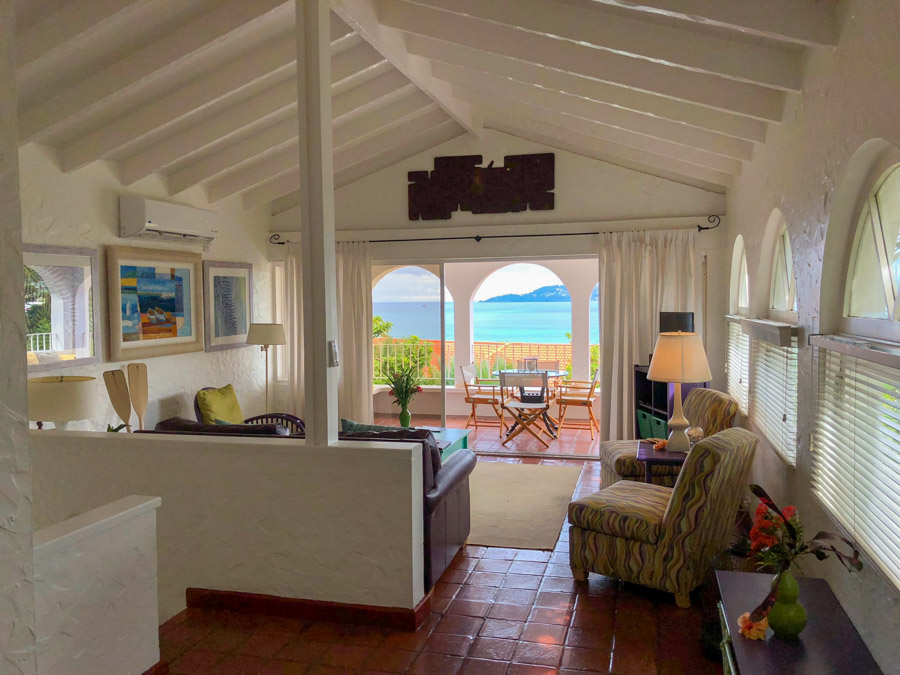

Oh I just made $1000 in my sleep.
We posted only positive things because nothing negative had happened to us at that point.
But guess what… and I’m sorry to spoil this for all of you aspiring digital nomads out there… it’s not all rice paddy offices and smashed avo on toast.
In this post, you can expect an honest look at what it’s like to build and run your own remote businesses, and a few things that we managed to mess up pretty bad.
Hopefully you can learn from our mistakes.
We were guilty of this for about the first 8 years of our nomadic life. We traveled so much that we couldn’t really get any work done.
Here’s a news flash… You can’t build a real business if you’re moving to a new hotel or Airbnb every 3 days.
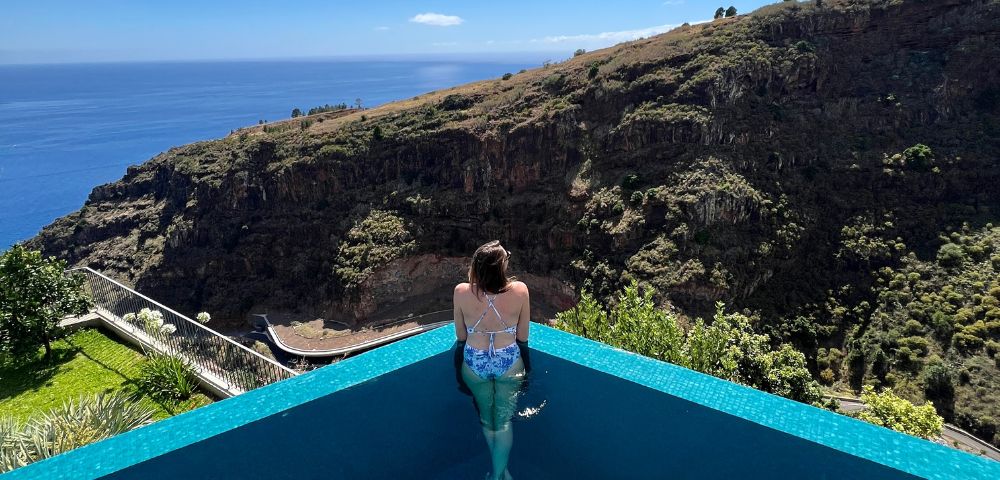

Or maybe you can… but just don’t get upset when your nomad friend spends at least 4 months in every place and then his business, lifestyle, and six pack is way better than yours.
If you’re serious about this whole nomadic business thing, stay at least 3-4 months in every place. Get an apartment with good Wi-fi, set yourself up with a routine, and spend at least 20 hours per week with focused work on your business.
And if you want those abs… always do all of your work from the plank position 😂.
2. Network Like Crazy
I’m a relatively social guy… in that… if Dariece forces me to go out and socialize… I will behave out in public.
For some reason I have never really liked “Digital Nomad Hotspots”.
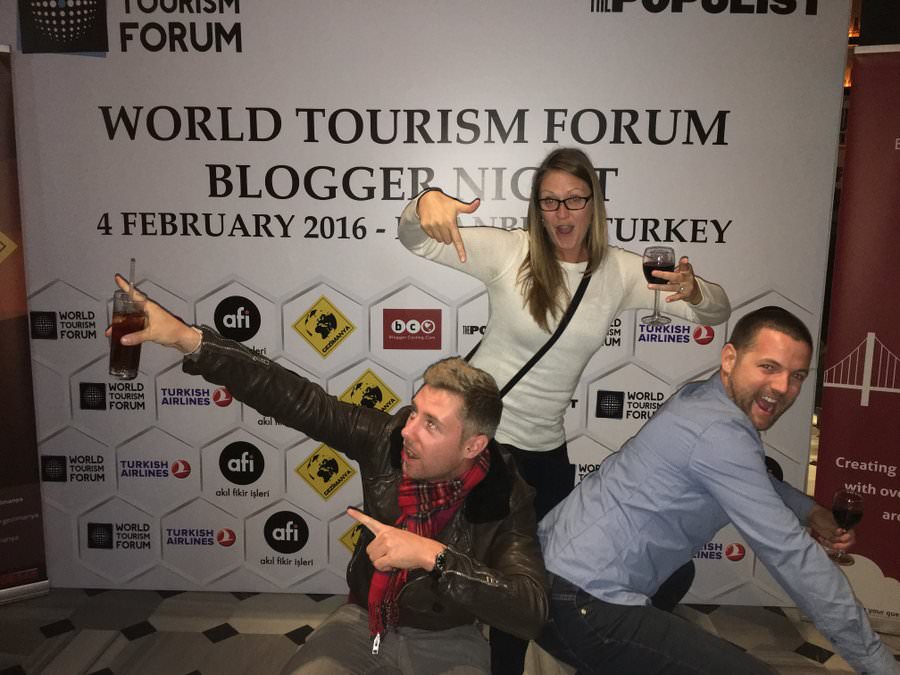

But either way, I can’t help but to notice that the people who frequent those spots are also far more motivated, have better ideas, are better diversified, have a better network, and are generally more successful than their non-social counterparts.
Network as much as you can.
Go to events.
Base yourself in hot spots.
Work in co-working spaces.
Email your competitors and become their friends.
Randomly show up at successful people’s houses and ask for tips.
Send creepy fanboy letters.
Do everything you can to learn from every person you can.
3. Don’t Get Cocky
I’d like to say I don’t get cocky. But maybe there’s a few ways I’ve been just a little bit cocky over the years.
Like, maybe I got cocky with SEO when I built a 6-figure blog in 12 months.
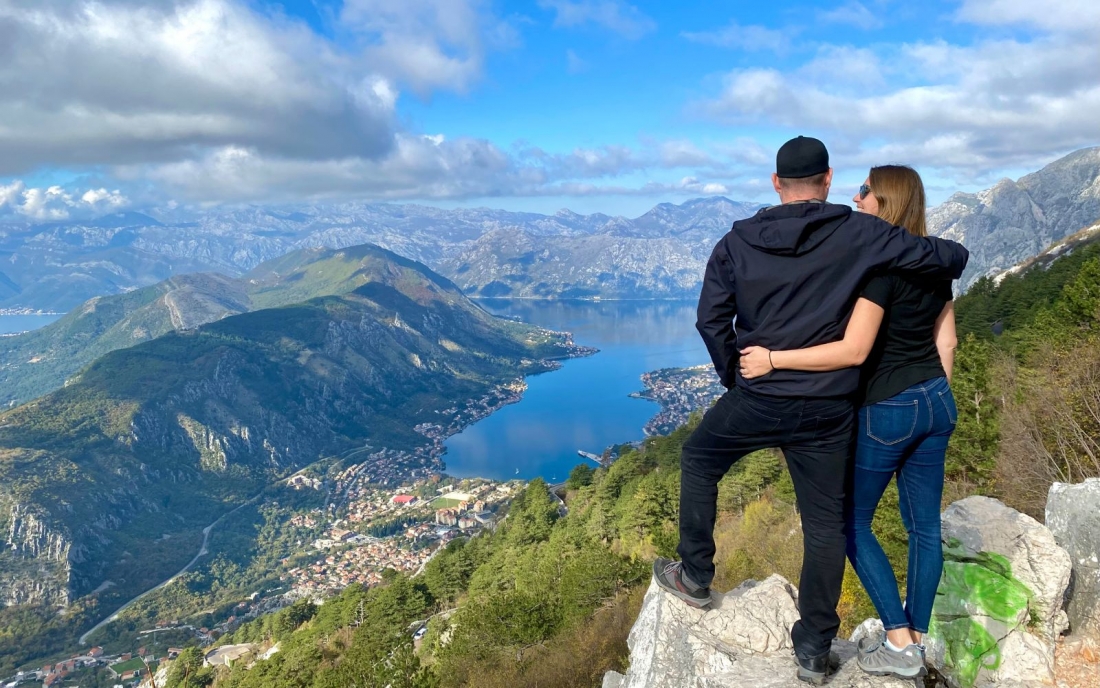

Maybe I got cocky with advertisers when I realized we could charge $500 for an instagram reel.
Or perhaps I was cocky with Tourism Boards when we saw that we could charge $10,000 for an all-expenses-paid trip.
Or maybe writing those last 4 lines was cocky. 😂
You should know your worth, but don’t overdo it. Just because your particular market might be exploding right now, it doesn’t mean it’ll always be that way.
If you always have the intention of helping other people, sharing the most valuable content possible, building a real community, and just generally being a good person… then I think you’ll be fine.
4. Diversify
You’ve probably heard me say this way too many times now.
If your blog gets 80% or more of it’s traffic from Google, or if it makes more than 50% of it’s income from one source, like Ads, Affiliates, or Sponsors, then you need to take a good hard look at your business and find ways to diversify.
Take this from a guy who has seen business crash by 50% or more because of a lack of diversification.
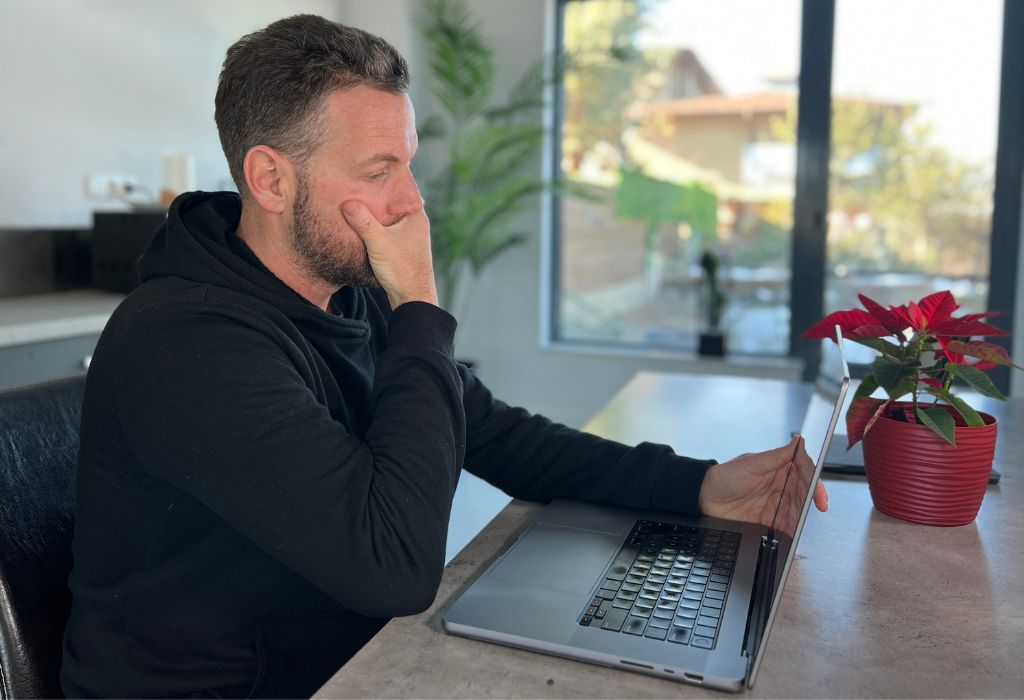

Those types of crashes can be enough to make an entrepreneur quit.
How do I know this?
Because in the past year there’s been a mass extinction event of bloggers since Google decided to punish them for doing exactly what Google told them to do.
Had they been diversified more… and this includes us… they probably wouldn’t be crying themselves to sleep every night, or… god forbid… waking up to an alarm clock to go back to their 9-5 jobs.
The only non-diversified business that’s still a real business and relatively safe is one that earns almost all of it’s income from a product or service.
If your business makes most of it’s money from a product that YOU CREATED and YOU OWN, then you can probably sleep soundly because YOU OWN that product and thus have a bit of control over your own fate.
Don’t let other companies control the majority of your income and don’t rely on a single platform for the majority of your traffic and lead generation.
5. Have a Product
Like I said, if you don’t own it… you can never control it.
Create your own product or service. This is basically the definition of a business, and yet so many online entrepreneurs seem to bank their entire business on outside sources to pay their salaries.
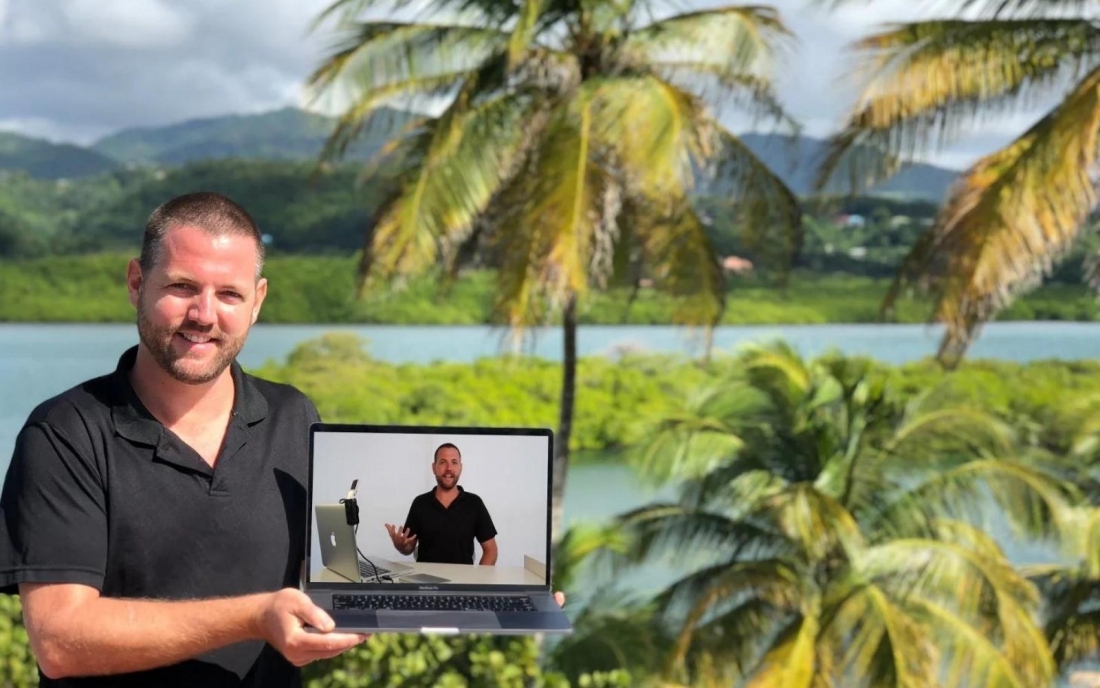

Create a product. Promote it on your blog, social, and email.
Digital products are the best because once you build them, there’s generally no overhead costs like shipping, manufacturing, and storage.
Think pre-recorded courses, ebooks, coaching programs, itineraries, live lessons, and memberships.
These are fun and pretty easy to create and when done right, they can be huge money makers and also be super valuable and helpful for your audience.
This is the biggest win-win in business that I can think of.
If you don’t have some kind of product now… get on it.
If you have more than a few hundred people seeing your content every month, then you’re probably missing out on thousands of dollars per year by not creating a simple digital product.
6. Rock Your Email Funnels
When we sell our digital products, we do so almost exclusively from our email lists.
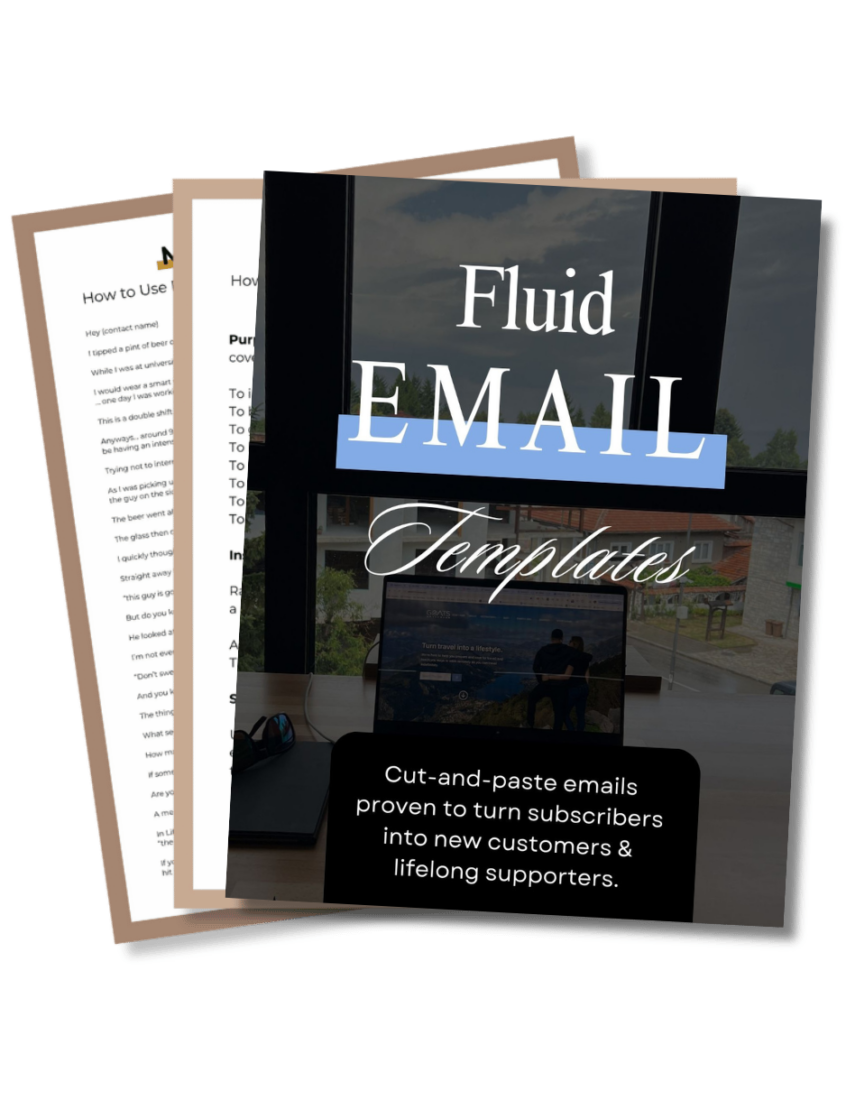

One email subscriber is like 1,000 followers. These are the people who are most likely to buy from you.
On top of that, you own your email list. No algorithm or tech feature will ever block you from contacting them (as long as you’re not spammy).
Offer something for free to your followers so that they will happily give you their email, then offer them lots of value every week for free.
Eventually, usually after around 4-5 emails, you can present your offer.
But don’t present it in a cringy, salesy way. If you’ve effectively led them down the 5 stages of buyer awareness within your email sequence, then they’ll be happy to purchase from you, support you and learn from you.
This is called “warming up” your audience, and when done right it can be the difference between crickets and thousands of dollars of sales coming in while you sleep.
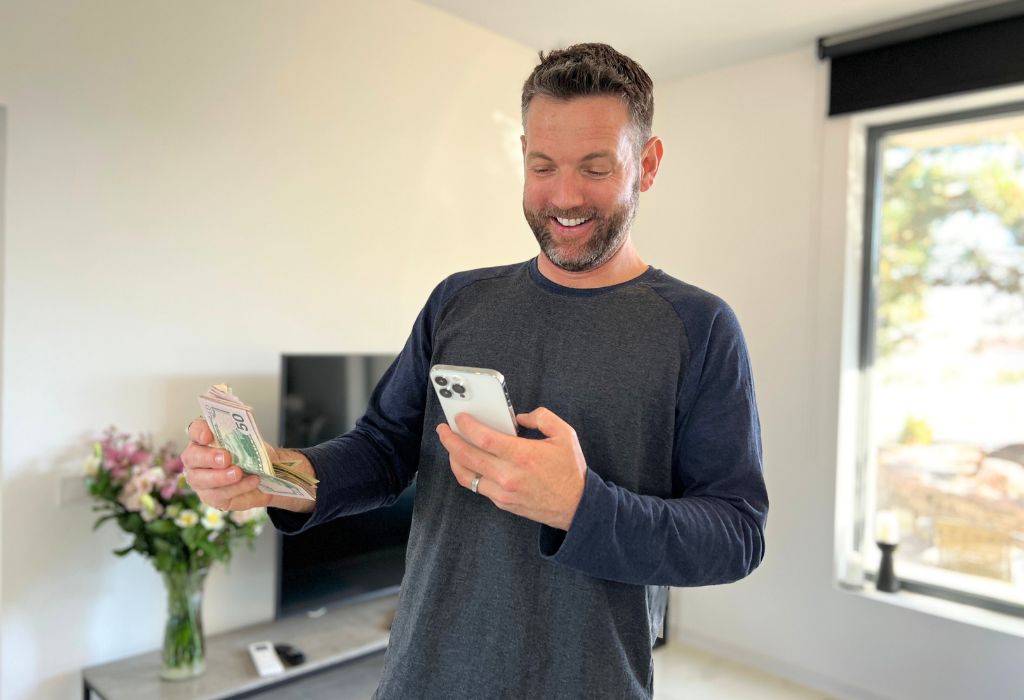

You don’t have to be a sleazy used car salesman to make money from your email list either. Just be authentic, honest, and open with your subs.
Give them a ton of value in each email, and then present your offer in a “by the way, if you want to take this further I have a premium product” kind of way.
7. Don’t Sleep on Social
I’ll be honest here. I TOTALLY slept on social media for years. Money was coming in from our blogs and email lists, and we had more than enough to travel around the world in luxury while saving for our futures.
I was never a person who wanted to be famous.
Rich?
Rich would be pretty cool.
But famous?
No thanks.
So I thought that the fact that we were able to make good money without showing our faces all that much was pretty awesome.
But… I was wrong.
Yes our businesses did well with a dozen writers… but people engage with people. We could’ve still had our team of writers, but we should’ve kept our personalities at the forefront.
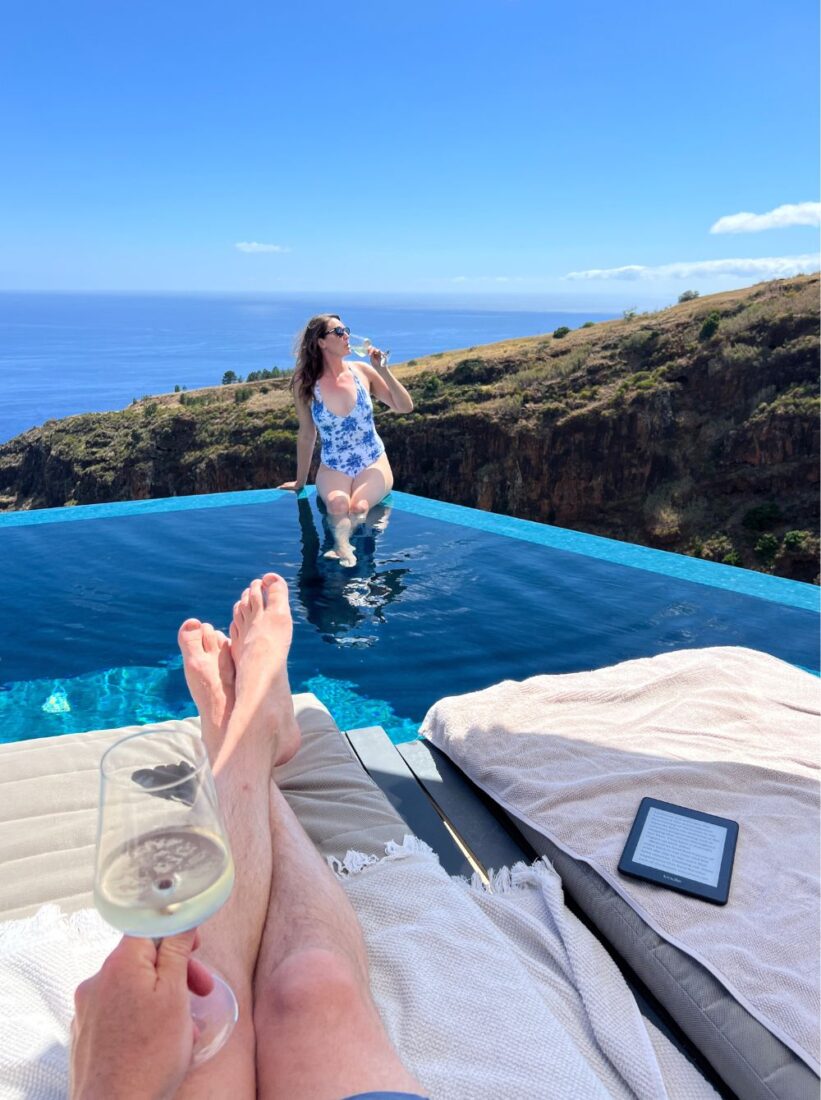

We backed off of YouTube, doing live videos on Facebook, and we rarely (if at all) utilized Stories on Instagram. We would’ve been much further along if we had focused more on our personal brand.
Personal brands are WAY easier to grow, they are easy to build solid communities around, and they are way easier to monetize.
This is what we’ve been doing now for the past couple of years and it’s paid off huge.
I can’t count the number of times one of our subscribers, followers, customers or clients has said to us “I feel like I already know you”.
That’s because we are personal with them.
Social media is the future. With AI turning the internet into a hotbed of regurgitated content, and short form video content taking over, it’s no surprise that social is where it’s at.
While robots can write passable blog posts, no AI can create a talking head reel that people will actually resonate with… at least not yet.
You don’t have to spend your life posting every minute of your personal life online either. Choose one platform, for us it’s mostly Instagram, create content for that platform and repurpose it to others.
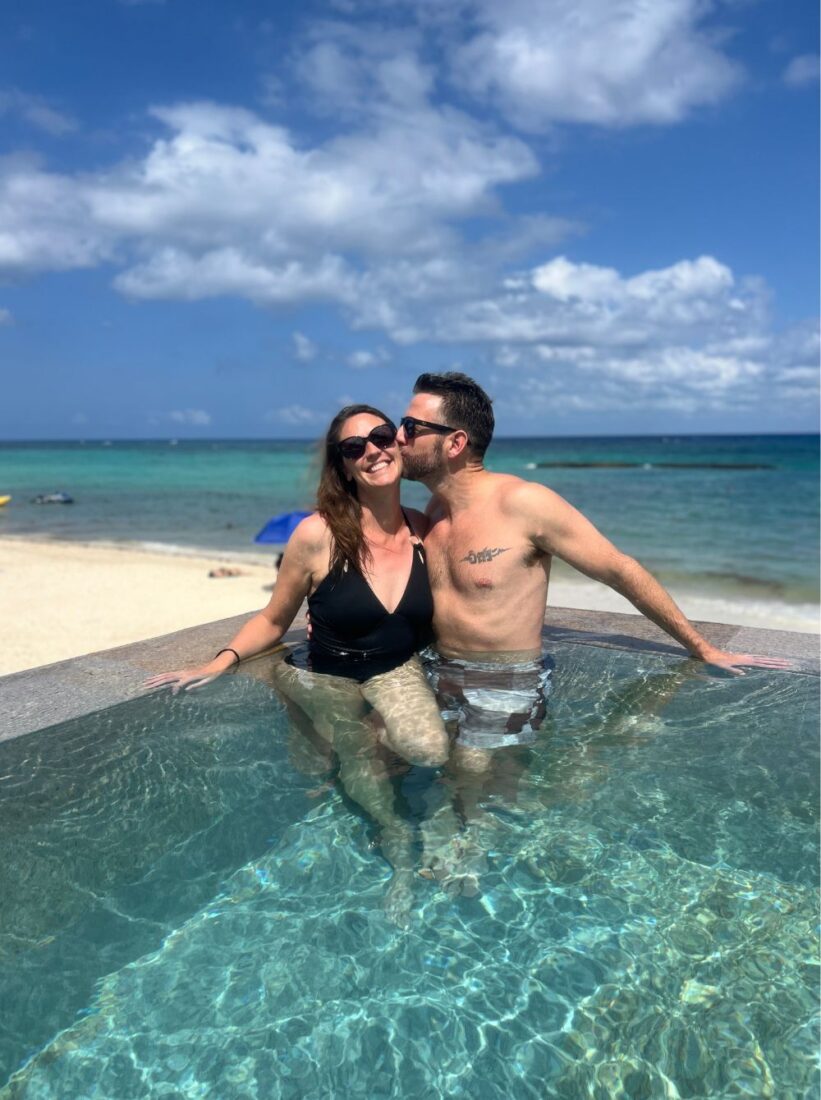

But no matter what, every business needs a strong social presence. I would say you should get at least 50% of your total lead flow coming into your business from social.
It’s just that powerful for resonation and authority building.
8. Invest in Yourself
As a person who’s selling coaching program and courses, there’s no way to say this without sounding like I’m trying to convince you to invest in yourself so you go and buy my courses.
So I’ll just say this. I invest in myself all of the time. Between Dariece and I.. we’ve spent close to $100,000 on courses, coaching programs, and consulting over the past few years.
But it wasn’t always that way. I still remember one time about 5 or 6 years ago my buddy told me he paid $1,500 for an email course and I thought he was insane.
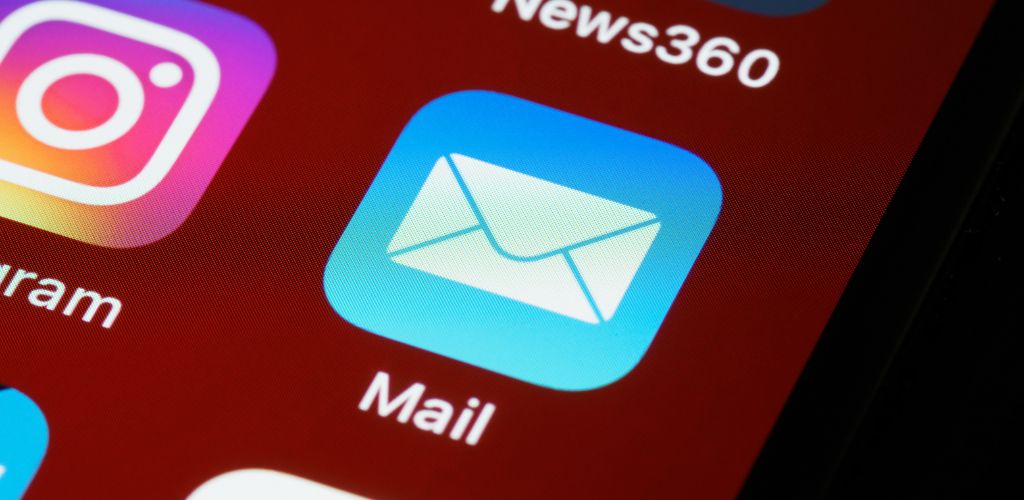

Now we’ve purchased a couple programs worth around $10,000 each… and guess what… they’ve been worth it.
And of course, it’s not like we’ve always turned around and earned that money straight back.
But the skills or tools we learned when we pay for programs and consulting have always sharpened our own abilities and allowed us to grow our businesses further, or at least grow personally.
So over time, they pay themselves off multiple times over.
If someone says to you that you’re crazy for spending $5,000 on a course, just ask them what their tuition bill was for that bachelor’s degree that they never used.
Educating yourself is always a worthwhile investment.
You should be happy to pay $5K for something that might earn you $50K and make you a better entrepreneur, partner, or person, in the process.
9. Success is Not a Straight Line
This is probably the hardest lesson there is to learn. It still hurts me to this day when we are on a downward trajectory in our businesses.
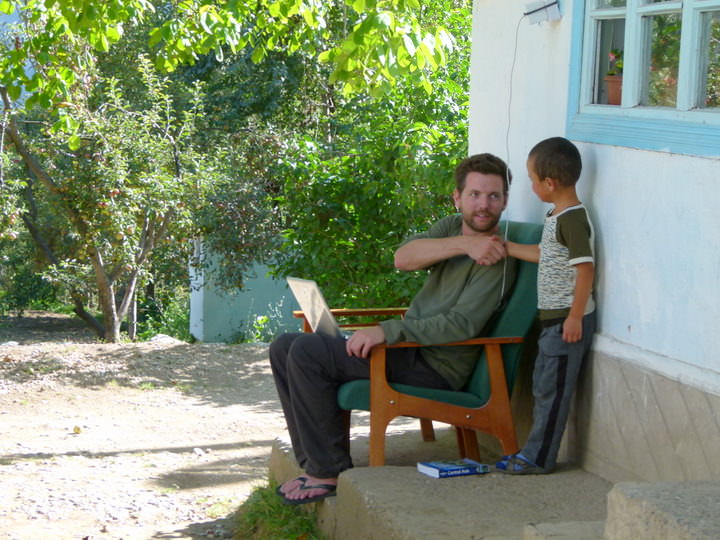

But it happens. None of us are on a constant upswing… no matter what your Instagram feed would have you believe..
Even Elon Musk has times when his businesses crash.
It’s part of the game. Get used to high highs and low lows. The best entrepreneurs out there are able to accept the lows and move past them, while staying humble during the highs.
10. Success is 90% Mindset
After helping over 1,000 people start their own businesses, and personally coaching nomadic business owners one-on-one, I can tell you that people don’t fail because they suck.
They don’t fail because their content is boring, or because their audience gives up on them.
They fail because they give up on themselves.
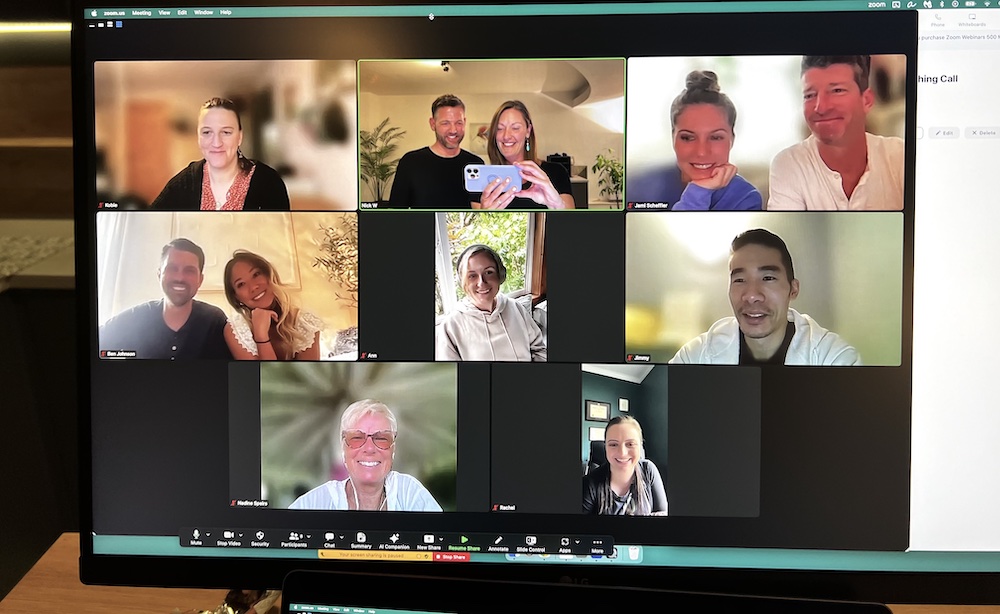

This journey is one wrought with doubt, fear, and worry.
People doubt that they’ll ever make it. They fear that people will judge them and their content. And they worry that they’re wasting their time.
I would go as far as to say nearly 100% of people who are serious about building a remote business CAN succeed. But 99% of them DON’T succeed simply because they don’t believe they can.
They give up… often times just months or even weeks before they would’ve hit it big.
I’ve seen it it so many times.
But you know what this means? It means that there is more space for you. Because you KNOW you can make it work, right?
This is the kind of mindset work we coach our clients on. I’d go as far as to say that for the first 3-4 years of your entrepreneurial journey, having accountability, a community, and an effective mindset is just as important as your business plan.
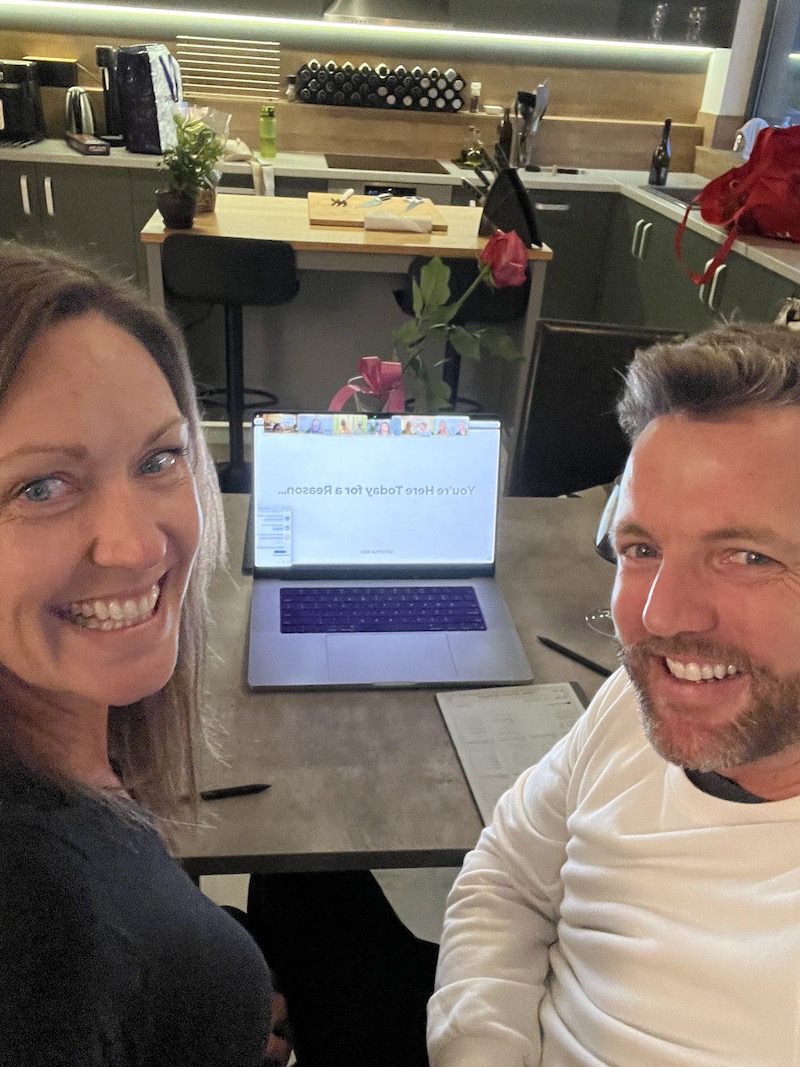

You need to KNOW it’s going to work. Pick a single path. Follow one system created by one person that you know has made them successful and don’t waver or look back for at least a year.
Build your business in seasons. For each season you have a near singular focus. Only when you’ve accomplished what you set out to do in that season, or if you’re absolutely sure that the thing you were focusing on is unattainable, do you move to another season.
11. Don’t Believe Social Media
Ok you know how I said you need to have social media to be successful? Well by that I mean that you need to leverage social media, not let it destroy you.
It’s almost impossible to scroll on Instagram without feeling like everyone’s life is better than yours and everyone’s business is more successful than yours.
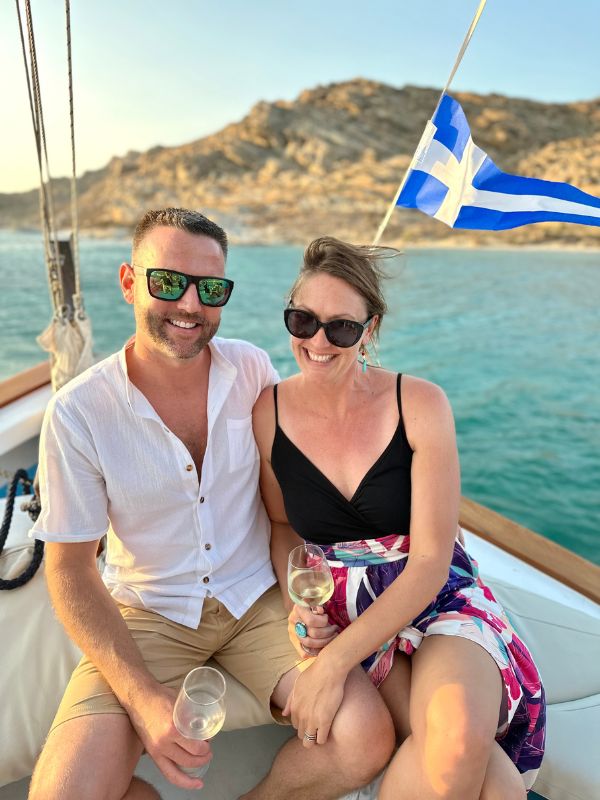

I can tell you from experience in meeting and knowing a lot of these online business influencers that in most cases their businesses aren’t earning as much as they say… their lives aren’t as good as they portray and their businesses have down days just like the rest of us.
We’ve posted about this many times on our social media.
While we don’t personally exaggerate our earnings or business success on social, it’s still true that all social media feeds are a highlight reel. Including ours.
It’s important to find inspiration from social media, but don’t let the feed make you feel like you’re doing something wrong, or that you’re not good enough.
12. Passion ≠ Business
And finally the 12th thing we’ve learned from 12 years of building businesses online is: Passion doesn’t equal business.
If I hear one more person online say that all you need to build a successful business is to follow your passions, then my head will explode.
A successful business needs to tick 4 boxes:
- It has to be something you have a level of skill and knowledge around
- It has to be something that can actually earn money
- It should be in a market that isn’t overly saturated or positioned in a way that makes it completely unique
- …and yes… lastly.. You need to be passionate about it.
I’ve seen people spend years posting content about something they’re passionate about, like cooking, but because they never planned their monetization, or found a way to stand out in a saturated market… they were never able to make turn it into a business.


If you’re looking for a hobby, then by all means, post about your passions alone.
But if you want to make it a business, you need to know how to do proper market research, pick a monetization strategy, find product market fit, and pair your passion with your skills and knowledge.
Trust me, before building my Fly Fishing business into a 6-figure per year brand in 12 months, I knew I was knowledgable in the industry, I knew exactly how I’d monetize, and I found specific ways to ensure my brand stood out in the market.
This is also what we help our clients to do during our live calls in our coaching program.
It’s extremely important and can save you thousands of hours of work.
BONUS: Authenticity is 🔑
One bonus piece of advice before I end this article is to be yourself.
I know what you’re thinking… This is some generic vanilla sounding advice… but if you take it seriously and listen to what I’m saying, it could be the most important thing you learn from this post.
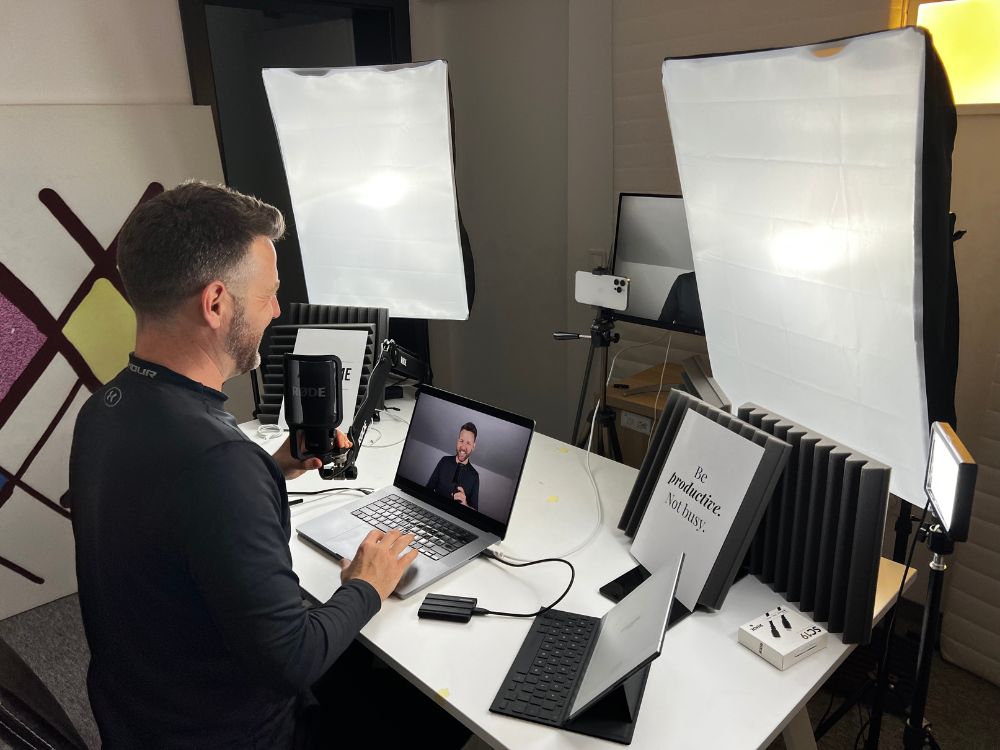

There have been studies done that have actually measured vibrations in humans and their reaction to certain states such as fear, contentment, and authenticity, and what they found is that the vibration of authenticity is actually up to 4000 times more powerful in humans than love.
This means that we humans value authenticity over all else.
Being yourself just means that you don’t pretend to be something you’re not online.
Don’t push yourself to follow trends or do things just for the sake of trying to make money or go viral.
Just do you.
Do what you enjoy doing.
Like our YouTube channel for us.
It’s never been a big money earner, and it’s never taken off for us.
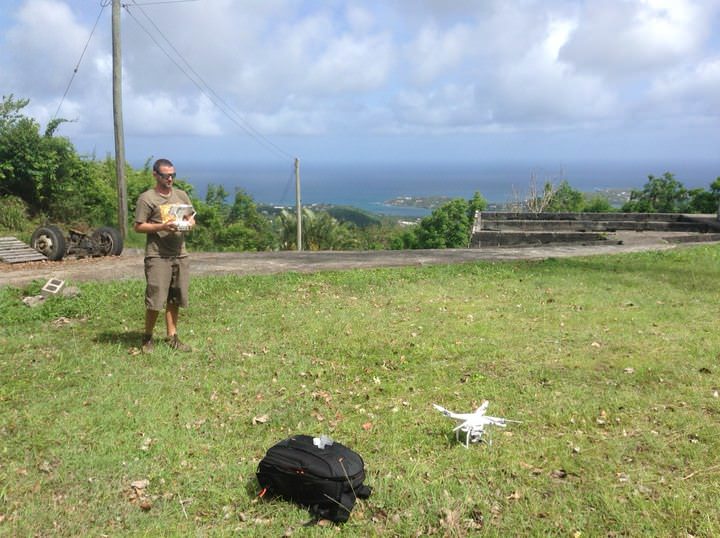

We’re not famous YouTubers by any means.
The point is… I love creating videos so I keep doing it.
Pick something you love, build a business around your passion, make sure you know what you’re talking about and you have a niche and a monetization plan, and just stay authentic as you grow it… no matter how ridiculously successful it becomes.
In Conclusion…
We’ve been doing this whole digital nomad thing since before the term digital nomad was popular.
We keep building remote businesses because we love it.
We love being creative. We love building something for ourselves. We love the freedom to travel whenever we want and work from anywhere. We love sharing our stories and knowledge, and we love helping people.
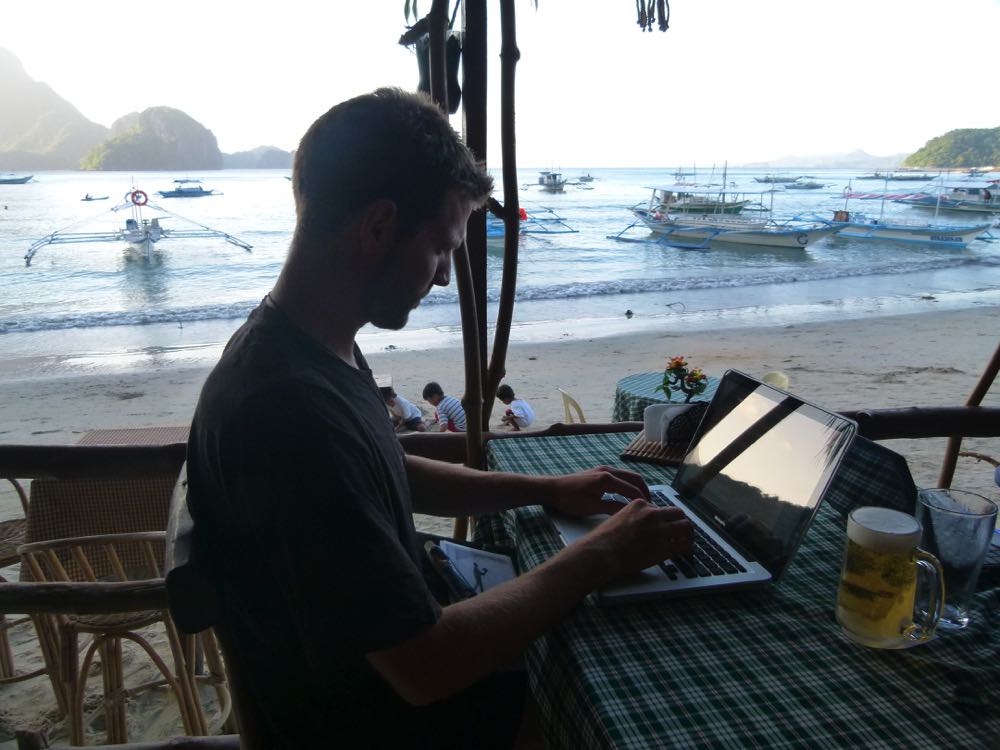

If you have questions about building your own remote business… or about growing the one you currently have, check out our Creator Kickstarter Coaching Program.
We’re helping a very select group of entrepreneurs one-on-one to help them launch, grow and monetize a successful remote business based around their passions.
The goal is to help as many people as possible to copy our success and to do that, we’re sharing everything we’ve learned from growing 5 separate remote brands and helping 1,000+ people do the same.
We’ve already had some amazing success stories from our first cohort of amazing entrepreneurs (who we call “Remote Goats” 🐐).
We’d love to have you as part of our “herd” 😉
Alright that’s it for this one! If you enjoyed reading it, head over to our Instagram and follow us and maybe leave us a comment or DM there about this post.
Thank you for reading!



:max_bytes(150000):strip_icc()/TAL-cheval-blanc-st-barth-HOLIDAYRESORTS1024-5e6d37c11e524d3694b1ae03268d72ae.jpg?w=145&resize=145,100&ssl=1)




Leave a Comment